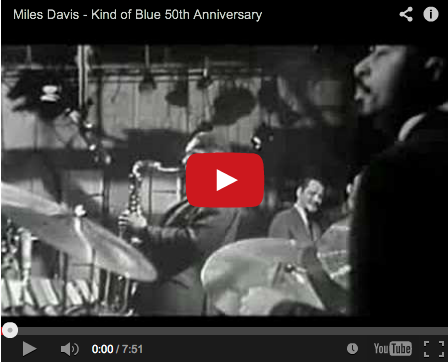
Google I Love You, But You’re Bringing Me Down
[youtube]https://www.youtube.com/watch?v=pBpLKm8vw4M[/youtube]
A lot of my blogs are about theatre, improv and my day-to-day experience as a graduate student. Occasionally, I will write about other areas of interest, and today, my friends, is one of those days. Google is undoubtedly the company to beat when it comes to search engine, and online ad revenue. They are massive, and seemingly beyond reach. They are now attempting to take over the music streaming market, which they have been attempting for some time, to varying degrees of success. The next big push for them is utilizing targeted marketing through a recent acquisition. While this may not make Google Music more enticing for Spotify users, it does make Google Music more enticing for those placing ad material. Let’s break it all down, and see what’s what.
Google’s recent acquisition of Songza allows users to select a number of playlists based on their activity, tracked on their phone. This creates an even more targeted content delivery system. There are advantages to the specificity with which music is able to be delivered for all concerned, but there are also detriments to the user and those generating the content.
Targeted delivery of music allows the user to receive music that will fit their listening needs with a minimum of effort on their part. The ability to deliver music based on location allows bands to deliver music to a user that might be near a concert location they will be playing at in the near future. And, obviously the labels can advertise related music in the suggestion slots, and within the suggested play lists themselves. Google All Access does not currently support ads that aren’t music related, and even those music related ads are more of an ad to sell the album, more than anything else.
The negatives of this structure are that it makes it difficult for users to branch outside their comfort zone. I may never have listened to Miles Davis if a friend didn’t act aghast at me never having listened to Kind of Blue. It’s possible that I wouldn’t have gone to see Arcade Fire with the opening act of LCD Soundsystem playing, New York I Love You, But You’re Bringing Me Down, and if I had never heard that song, I may never have ended up in Chicago rather than New York. People, not customizing robots, are responsible for most of my musical tastes.
The upshot is that currently Google All Access doesn’t have that kind of social interaction fleshed out, and getting ever more targeted suggestions for music could pigeonhole your listening habits into what’s marketable for the labels. Additionally bands on the fringe of the music scene or without the money to be listed as the first track in the “Sad Day, Fun Music” play list, may even have less of a shot at getting their music heard as streaming becomes more and more prevalent.
The acquisition of Songza, while making Google’s product more targeted and therefore more marketable to those willing to spend money, still ignores the problem of market share. Google was in talks to buy Spotify, but the deal went stale. Google has the money to spend they should make an offer that can’t be refused on Spotify, at least that’s my two cents. Perhaps their analysis doesn’t show that streaming is the future of digital media consumption, and they are just using Google All Access as yet another way to collect market data.
Ultimately, as digital media becomes more and more targeted, and streaming services provide greater access to on demand entertainment, those that lose out seem to be the user, in some subtle ways. With free on demand listening, comes a devaluation of the music being heard. The less effort expended seeking the music, the greater the apathy towards the musical experience.
The converse of this effect is that bands and artists are required to deliver music in more interesting ways, and their music has to be better and better (or at least more controversial) in order to get attention. Not everyone has the money to pay for that delivery, and as any artist will tell you, talent will only get you so far. Streaming seems to amount to a consolidation and ownership of the democratization of music, not by the artist, or the labels, but through multiple steps by massive media organizations. Time to listen to vinyl again, I guess…
